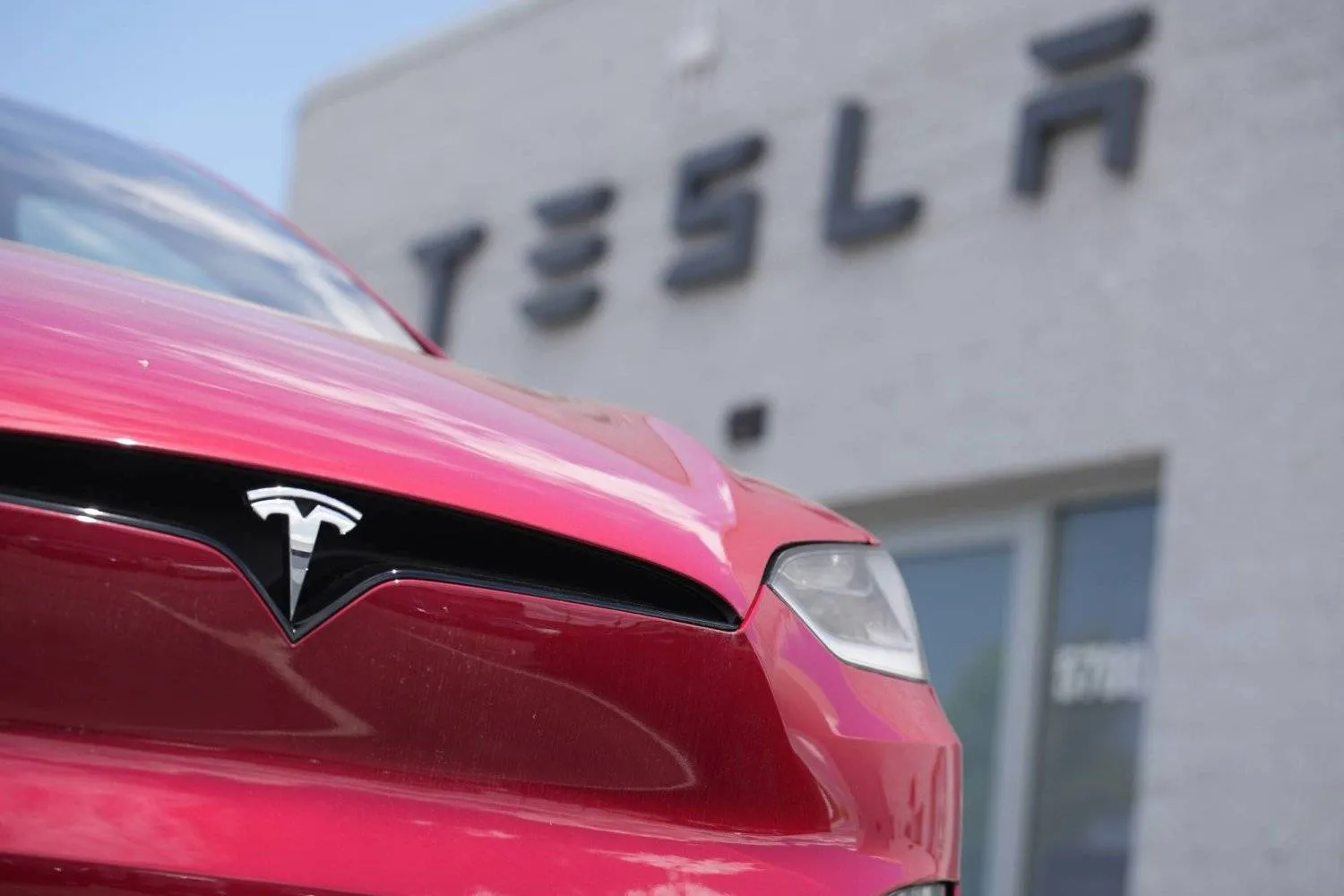Tesla on Tuesday reported its lowest profit margin in more than five years and missed Wall Street earnings targets in the second quarter, as the electric vehicle maker cut prices to revive demand while it increased spending on AI projects.
The company said it was on track to produce new vehicles, including more affordable models, in the first half of 2025, although the models will result in achieving less cost reduction than previously expected. Shares fell 8% in after-hours trade, Reuters reported.
"Perhaps more than ever in the company's recent history, Tesla's investors need results; those will have to come fast - both for the humanoid robot and for the Robotaxi," said Thomas Monteiro, senior analyst at Investing.com.
The second quarter was tumultuous, with CEO Elon Musk shelving development of an all-new cheaper car in favor of less ambitious lower-cost models and working on creating self-driving taxis, helping to boost shares. The company also laid off more than 10% of its employees to cut costs, and Tesla said profit was also weighed down by restructuring charges and an increase in operating expenses largely driven by artificial-intelligence projects.
Tesla recorded automotive gross margin excluding regulatory credits of 14.6% in the second quarter, compared with estimates of 16.29%, according to 20 analysts polled by Visible Alpha. Dan Coatsworth, investment analyst at AJ Bell, said Tesla has now missed earnings targets for four quarters in a row. “There is a lot of talk about robotaxis, humanoid robots and autonomous driving, which provides an exciting narrative for investors but doesn’t get over the fact that these are tomorrow’s potential riches, not today’s."
Musk told analysts on a conference call that new competitors "have discounted their EVs very substantially, which has made it a bit more difficult for Tesla." The company's electric vehicle deliveries have fallen for two consecutive quarters as the automaker battles rising competition and slow demand stemming from a lack of affordable new models. Tesla's sales of China-made EVs, which are also exported to Europe and elsewhere, slumped in the second quarter from a year earlier, whereas BYD Co and other Chinese automakers posted strong sales growth.
Tesla said on Tuesday it expected a sequential increase in production in the third quarter.
The company reported revenue of $25.50 billion for the quarter, slightly ahead of last year and analyst targets, according to LSEG data.
Tesla's sales of regulatory credits nearly tripled to a record $890 million in the second quarter from a year earlier. Traditional automakers buy credits from Tesla to meet clean-vehicle production regulatory targets.
Net income was $1.48 billion in the second quarter, compared with $2.70 billion a year ago, with adjusted earnings of 52 cents per share missing the Wall Street consensus of 62 cents, as calculated by LSEG.
ROBOTAXIS Shares of Tesla have surged more than 30% since June 13, when shareholders voted to approve Musk's $56 billion pay package that was invalidated by a Delaware court in January. Its shares were also boosted by hopes for robotaxis.
Musk over the years has promoted Tesla as a technology company, most recently saying self-driving technology was key. Predictions of that technology maturing have been missed for years, but on Tuesday he forecast self-driving software would be able to drive Tesla vehicles without human supervision next year, saying he would be shocked if that were not the case.
Tesla said on Tuesday the "timing of Robotaxi deployment depends on technological advancement and regulatory approval." But Musk said during the conference call, "I don't think regulatory approval will be a limiting factor."
He also said Tesla was likely to win regulatory approval for its "supervised" Full Self-Driving software, which requires driver attention, in China and Europe by the end of this year.
Musk said Tesla has delayed the unveiling of its Robotaxi product to Oct. 10 from Aug. 8 to make some important changes to the robotaxi. He had announced the Aug. 8 unveiling date after Reuters reported that Tesla had pivoted to self-driving taxis after shelving plans to develop a long-promised all-new cheaper car expected to be priced at around $25,000.
"Elon is great at dangling the carrot in front of investors, but new ideas tend to be long on vision, but short on execution," said David Wagner, head of equity and portfolio manager at Tesla investor Aptus Capital Advisors.
Musk had said in 2022 that Tesla expected to mass-produce a robotaxi with no steering wheel or pedal by 2024. General Motors said on Tuesday its Cruise self-driving unit will focus its development efforts on a next-generation Chevrolet Bolt as it indefinitely delays its planned Origin vehicle that would not have a steering wheel.
Tesla said Cybertruck production "remains on track to achieve profitability by end of year."
Tesla said it has started validation of its first prototype Cybertruck vehicles using its breakthrough battery manufacturing technology called dry coating, which is "a major cost reduction milestone once ramped" and that production could launch in the fourth quarter.









